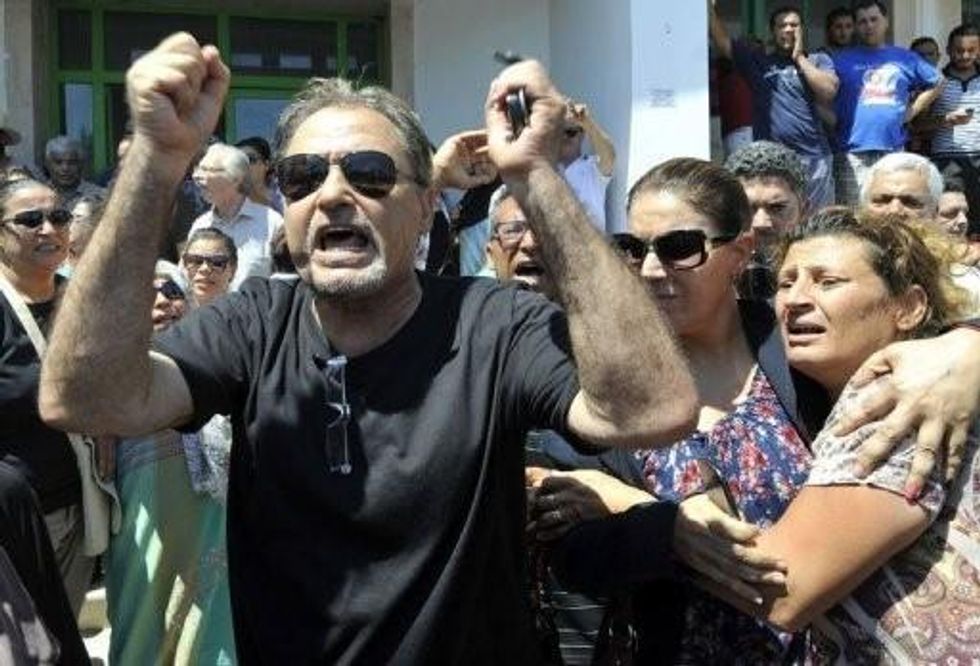Thousands protested in Tunisia's streets Thursday after leftist opposition party leader Mohammed Brahmi
was assassinated at his home earlier in the day.
A head figure in the left Popular Front and a visible critic of the ruling Ennahda party, Brahmi's assassination comes just months after Popular Front leader Chokri Belaid was gunned down earlier this year.
Brahmi was reportedly killed in front of his wife and daughter, and the gunmen fled on motorbikes.
"This criminal gang has killed the free voice of Brahmi," his widow Mbarka Brahmi told Reuters Thursday, although she did not say who she thinks killed him.
Thousands gathered in cities throughout Tunisia to protest the assassination, including in front of the Tunis Interior Ministry and the Ariana district hospital where Brahmi's body was transported.
The crowds chanted slogans demanding that the ruling Ennahda party resign and calling for the downfall of Islamists--a reference to the Islamist Ennahda party-- according to media reports.
Ennahda says it condemns the murder, yet many of those gathered in the streets charge that the ruling party is directly responsible for the killing.
Hassiba Hadj Sahraoui--deputy Middle East and North Africa program director at Amnesty International--told the LA Times that the government has at least some culpability:
Little has been done by the authorities to ensure that reported attacks against members of the opposition are adequately investigated and those responsible are brought to justice, fueling a climate of impunity and increasing political polarization.
The assassination of Chokri Belai in February prompted the largest mass protests since Tunisia's 'Arab Spring' uprisings that toppled Ben Ali in 2011.
Many in Tunisia are calling for a second revolution against the Ennahda party now in power, in response to their harsh repression of political dissent, derailment of democracy, crackdown on women's rights, and continuation of ousted Ben Ali's neoliberal economic policies that deepen poverty and unemployment.
Tunisia's rebel movement is calling for a dissolution of Parliament and urging Tunisians to take to the streets.
_____________________




